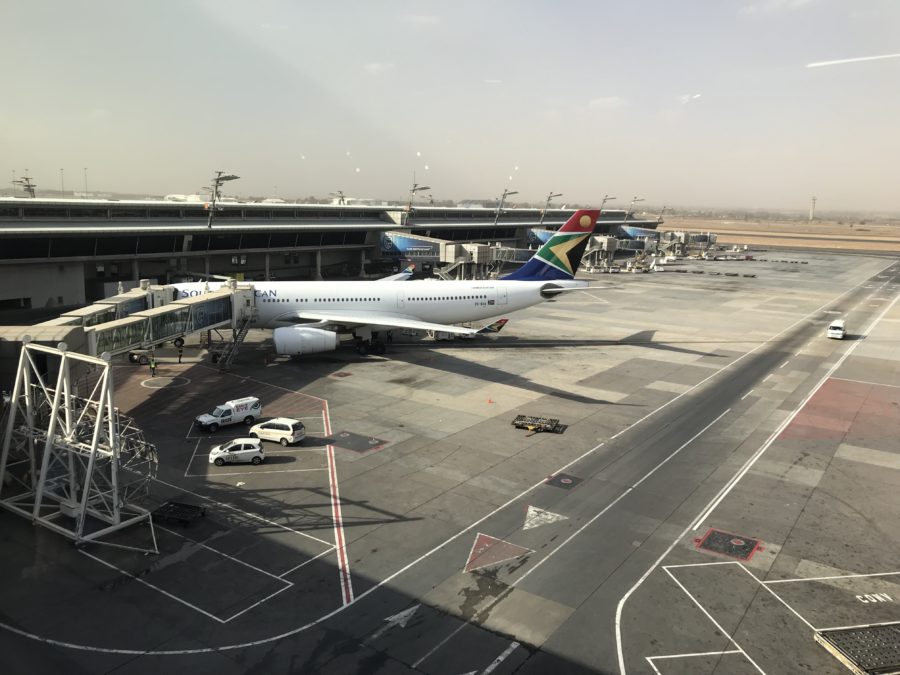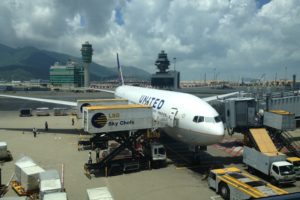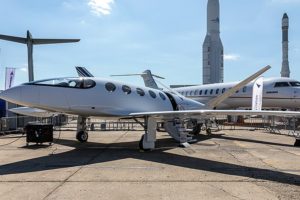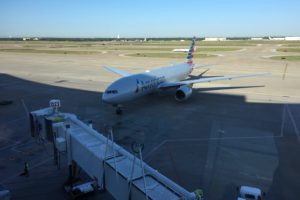Will Aviation Recover From The Lasting Effects Of The Coronavirus Pandemic?
The vast majority of the world is in shutdown, thousands continue to die by the day from COVID-19 and there doesn’t seem to be an end in sight. While we may start reopening the economy in 1-2 months, the world will never return to the pre-COVID times, and things like handshakes may be a thing of the past. The aviation industry will emerge smaller, or so airline CEOs say, and the question then becomes: when will the aviation industry fully recover from coronavirus crisis? I don’t think anyone knows, so I guess at this point the only thing that anyone can do is speculate about it.
First, The Pandemic Is Nowhere Near Over Yet
Due to the nature of COVID-19, the lasting effects of the pandemic are likely not going to end any time soon; we probably aren’t going to go back to “normal” for quite a while. A vaccine and its wide distribution is most likely not any less than a year out, if not more, and I know for a fact that there are plenty of people who will feel uncomfortable traveling until a vaccine is out and distributed. That being said, the economy can’t stay shut down for a year, so obviously, businesses will start to come back within the next two months.
Additionally, at this point, we likely have seen a peak in the number of deaths and cases in the US alone, although if we start going about our regular lives again now, we will inevitably see a resurgence in the number of cases. The re-opening of the worldwide economy will be a very long process, and any action which moves us back to “normal” may see a resurgence in the number of cases.

No one can say when we as a society can start getting back to “normal,” and I do believe that this is an event where there was a pre-COVID time and a post-COVID time, meaning that actions such as handshakes likely will go away. The reign of COVID-19 over the world is far from over, and I think that the one thing that I can definitely say is that there is no going back to the world we lived in just two months ago in February.
Aviation Is Among The Hardest Hit Industries
The aviation industry has been hit among the hardest, although I think that every company, no matter the size, in the entire world has seen a massive downturn, probably besides Zoom. Airline capacity is down almost 100%; United recently stated that the number of flyers they’ve had recently per day has gone down nearly 97%, in comparison to an average comparable day in 2019. In early March, airlines were forecast to lose over $113 Billion in revenue, although I would imagine that the projected numbers may be higher now.
Around the world, most aircraft have been grounded or stored, and it is possible, if not likely, that many airlines will never fly certain aircraft types (cough, cough, the A380) again, and more and more airlines are considering cancelling orders, especially for the 777X. United de facto CEO Scott Kirby and de jure (until May) CEO Oscar Munoz recently published a letter on United Hub, which displayed a very grim future for aviation, including 90% capacity cuts for May and likely also June (which is expected), and saying that there will most definitely be layoffs after September of this year, which they are prohibited from doing due to the terms of the federal government payroll grants for the aviation industry.

And United isn’t alone in this somber prognosis for the future. While AA CEO Doug Parker is relatively optimistic of a resurgence in aviation demand, he is in the minority among aviation analysts and executives. Air New Zealand recently laid off all of their Boeing 777 crews and doesn’t expect to fly the aircraft again until 2021 (Air NZ obviously isn’t alone in doing so), Cathay Pacific closed all of their North American crew bases, airlines are temporarily converting passenger jets into cargo jets, airlines are cancelling most flights even through May, most airlines are running out of cash and or have received government aid, and South African Airways (which by the way was a fantastic airline) is all but dead.
Obviously, aviation has taken a very hard hit because demand for flights is almost down to zero now. We have seen some airlines handle this situation well in terms of caring for the consumer through offering generous refund policies (while others have not been the most generous), and most major airlines (including United, Delta, and AA) have reduced requirements for status for 2021 and have extended it for all current elites, which is very positive news.
Flight prices have also soared in the downward direction due to the pandemic, both for flights within the coming two months and beyond in the fall and winter, and I think we can expect that flight prices will stay down on average for the coming months if not years, as demand (which is the main focal point of this article) will not recover for some time. Award availability is overall better than we have seen in a long time (both in the summer and winter). Many airlines issue bonus points for buying miles at rates we haven’t seen in years, and apparently Hilton pre-sold a billion dollars worth of points to Amex.

Airlines also have radically cut their route networks, even in the long term. American Airlines has cut a large portion of their normally seasonal flights for the 2020 summer season, and will push all inaugural long-haul flights back by a year (although at this point, I wouldn’t be surprised if essentially all route additions from most airlines will be cut). Airlines are scrapping and parking planes which need not have been retired in a normal year, and aircraft manufacturers have massively ramped down production.
United recently announced that they would not be operating over 25 of their long-haul routes this summer, with more cuts likely to come, although they are planning to serve most major international markets from at least one hub this summer. I could go on and on about the cuts which the aviation industry has and will make, but I think we all get the message: commercial aviation isn’t planning on making a major comeback in quite a while.
Orders for new aircraft are also obviously down, with cancellations for new aircraft being seen for both Airbus and Boeing. In Q1 2020, Boeing saw a net loss in over 300 aircraft in terms of orders and temporarily suspended aircraft production, although they plan to reopen their plants soon. Airbus has also reduce the number of aircraft it is producing and will likely not produce as many aircraft as it did in 2019 for a lengthy period of time. I think that it’s pretty safe to say that the airlines, cash-strapped, will likely not want to pay for new aircraft, and many, especially smaller airlines, will cancel some if not most of their orders for new aircraft, in addition to accelerating the retirement of their oldest aircraft.

All airlines are facing extremely difficult months if not years ahead, and many airlines will likely die. As stated above, South African Airways has already become a victim of COVID, along with FlyBe, and likely many more will die over the next year as a result of loss in demand. The US airlines have been extremely fortunate in getting highly controversial loans from the government (with a few requirements, such as maintaining all existing domestic markets and not firing staff until October, which all airlines certainly will be forced to do), so I do think that the “Big 3” US airlines will all survive (their stocks are for the most part up compared to a month ago, which is a great sign for the airlines), although smaller ones may likely die or consolidate.
When Will Demand Recover?
First of all, it’s extremely likely that aviation and demand will increase before a vaccine comes out and that we will have a massive increase in demand within the next few months. However, it’s not looking likely that the increase in demand will big enough to make up for the slump in demand we have seen in the past two months. It’s undeniable that we are entering a recession right now, and that, regardless of when the pandemic goes away, economic activity will take a long time to recover. While flying will continue, as it’s a vital part of the economy and grants us the ability to go anywhere in the world within only hours, a service which we are extremely fortunate to have, demand will take a while to come back.

Why? Well, firstly, many people won’t want to or won’t be able to fly in the short-term. While aircraft have hospital quality ventilation systems, meaning that you’re unlikely to get sick on an airplane unless you sit directly next to someone who has the disease, many people don’t want to run the risk of having to be extremely close to other people who may have the virus. So there will definitely be a group of people who will refuse to fly until we have a vaccine, and plenty others will be more hesitant to, and may decide to travel only regionally by car or train, and some may even splurge to buy first class in efforts to maintain some social distancing.
Secondly, some analysts have stated that since everyone is getting so accustomed to teleconferencing due to the current circumstances, people may feel less obliged to attend each and every conference and meeting which requires air travel and may feel comfortable doing it via video chat. Again, there will be a distinct post-COVID world which will be starkly different from the one we lived in before, and I think that it is highly likely that face-to-face meetings will be less necessary, although they ultimately still can never be replaced.

Some analysts predict that the possible reduce in business demand may decrease full service airlines’ reliance on premium fares and will lead to the benefit of low-cost carriers and will increase the prevalence of point-to-point traffic and less hub-and-spoke traffic, a trend we have even begun to see in the past years. However, conversely, people who fly business class will likely begin to fly before others (and more people may pay for business class), as in premium cabins, you have more space to at least rudimentarily social distance. Others have argued that the pandemic might stunt the flight-shame movement, although I think that it is unlikely that it will have a major effect on future demand globally.
So yes, in the short-term and in the long-term, I do think that there will be significantly less demand in the commercial aviation sector. Airline CEOs tend to agree with that sentiment; both United’s and Delta’s heads have stated that their respective airlines will be smaller post-COVID. Unfortunately, this will inevitably result in en-mass layoffs, as the government funds only require airlines to pay their employees until the end of September–airline executives have warned that there will be layoffs to counter the loss in demand. Airlines will also inevitably have smaller and more modern fleets and will retire older aircraft types. United has even created an order of retirement for aircraft, and has specified that it will retire its antiquated 50 seater E145s and CRJ-200s first, along with subsequently retiring its 757s and 767s, following in AA’s footsteps, and may even start retiring its A319/A320s.

However, in the long-term, there are a few things to be optimistic about, regarding the future of aviation. Firstly, oil prices are obviously way down, and since oil is one of the primary costs of aviation, operating costs will generally decrease. Secondly, I do think that aviation will see a resurgence, as people still need and want to travel. After social distancing restrictions are eventually lifted, people will want to see their family, people will want to travel again (I imagine that most people are at least starting to go somewhat stir crazy at this point and it’s not like people will suddenly to stop wanting to travel forever because of the pandemic), and business travel will resume (although probably and smaller rates, given the increase in video communication technologies).
Thirdly, because demand has been down and oil prices are down, flight prices will also continue to be down for years, which will likely stunt demand. Overall, I do think that aviation demand will recover, as it has done after 9/11 and the recession (however the scale of this is much greater), but the full recovery period will likely take multiple years.
Conclusion
Airlines have taken a pretty hard beating because of COVID-19 (although the thousands of employees who will be forced to be laid off will, of course, have it much harder). The general consensus seems to be that aviation will take quite a while (years) to fully (if it ever will) recover. While airline demand will certainly not be back at its 2019 levels any time soon (possibly not ever in Europe and in the US, although worldwide population growth and the growth in the low-cost aviation sector in the developing world will certainly bring worldwide levels back to the ones from 2019…eventually), it certainly will at least partially recover within the next two years and will likely be fueled by low oil prices and the demand for leisure travel which will eventually come back, although business travel may be damaged in the long-term.
Do you think that the aviation industry will ever recover? If so, how long do you think that it will take?




